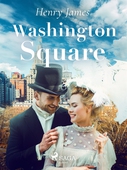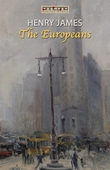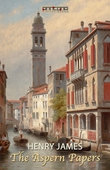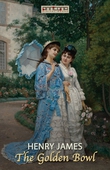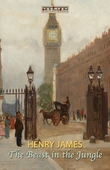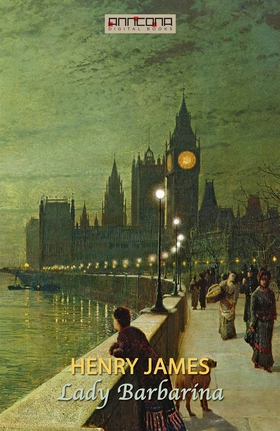
Lägg till önskelistan
Lady Barbarina e-bok
Pris
19 kr
Lady Barbarina is a novella by Henry James first published in 1884.
Rich and beautiful American girls heading to England to find themselves noble titles through marriage, and using their New World wealth to prop up the waning strength of the aristocracy, was almost a staple of late Victorian literature. "The Buccaneers," Edith Wharton called them, and their day is not over yet (think of Downton Abbey's Earl of Grantham, and his American heiress countess).
In Lady Barbarina, however, Henry J...
E-Bok
19 kr
Pris
Ljudbok
65 kr
Pris
Förlag
Anncona Media
Utgiven
22 April 2016
Genrer
Romaner, Skönlitteratur
Språk
English
Format
epub
Kopieringsskydd
Vattenmärkt
ISBN
9789176058237
Lady Barbarina is a novella by Henry James first published in 1884.
Rich and beautiful American girls heading to England to find themselves noble titles through marriage, and using their New World wealth to prop up the waning strength of the aristocracy, was almost a staple of late Victorian literature. "The Buccaneers," Edith Wharton called them, and their day is not over yet (think of Downton Abbey's Earl of Grantham, and his American heiress countess).
In Lady Barbarina, however, Henry James explores the obverse of this old tale: what if the wealth is in the hands of an American man, in love with the beautiful daughter of an old and titled (but no longer so very rich) family? Legal marital settlements, common in England, less so in America, can be a problem.
Think of them as the Victorian equivalent of modern pre-nuptial contracts, introducing a note, not of suspicion perhaps, but of cautious prudence in what otherwise might be seen as a match of pure love.
Henry James, OM (Order of Merit) (1843-1916) was an American-born writer, regarded as one of the key figures of 19th-century literary realism.
He is best known for a number of novels showing Americans encountering Europe and Europeans. His method of writing from a character's point of view allowed him to explore issues related to consciousness and perception, and his style in later works has been compared to impressionist painting. His imaginative use of point of view, interior monologue and unreliable narrators brought a new depth to narrative fiction.
Henry James was nominated for the Nobel Prize in Literature in 1911, 1912, and 1916.

